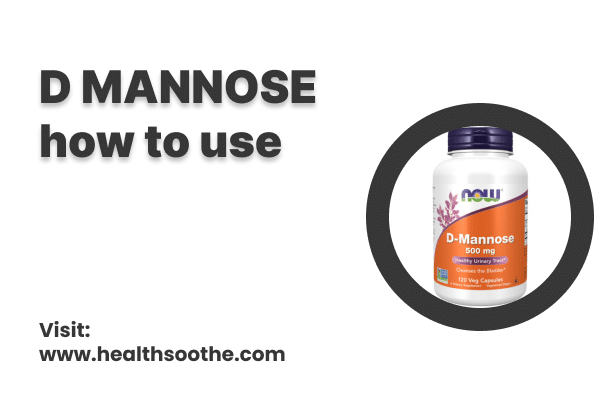D mannose, a sugar akin to glucose, is naturally present in various fruits and the human body.
This compound may aid in addressing deficiencies resulting from genetic anomalies and could potentially hinder specific bacteria from adhering to urinary tract walls, thereby averting infections.
D-mannose serves as a treatment for carbohydrate-deficient glycoprotein syndrome type 1b, an inherited disorder. Additionally, it's utilized for urinary tract infections (UTIs), though scientific validation supporting its efficacy in this regard remains inconclusive.
Uses & Effectiveness
Shown to be Effective for
Carbohydrate-deficient glycoprotein syndrome type 1b, an inherited disorder, demonstrates positive outcomes with oral d-mannose intake. This supplementation can ameliorate digestive issues, low blood sugar levels, and blood clotting disorders associated with this condition. However, its preventive effects on liver problems remain uncertain.
While there is growing interest in employing d-mannose for various purposes, insufficient reliable data exists to ascertain its potential efficacy for these applications.
Side Effects
When orally administered, D-mannose is deemed generally safe for most adults within a duration of up to 6 months. However, it may lead to side effects such as diarrhea and nausea. Insufficient reliable data exists to determine the long-term safety profile of D-mannose or its potential side effects beyond the 6-month mark.
Precautions and Warnings
For adults taking D-mannose orally, it's considered potentially safe for up to 6 months, but it may induce diarrhea and nausea. The safety of D-mannose beyond this timeframe is uncertain due to insufficient reliable information.
Regarding pregnancy and breastfeeding, there's insufficient data to determine the safety of D-mannose usage. It's advisable to err on the side of caution and abstain from its use during these periods.
In children with carbohydrate-deficient glycoprotein syndrome type 1b, D-mannose taken orally is conceivably safe, albeit it can prompt diarrhea, loose stools, bloating, and nausea. However, there's insufficient reliable information available to determine the safety of D-mannose in children without this condition.
Read Also: Names of Manpower Drugs in Nigeria and their categories
Pros and Cons of D-Mannose
Pros of D-Mannose:
- Urinary Tract Infection Prevention
- Treatment for Carbohydrate-Deficient Glycoprotein Syndrome Type 1b
- Natural Prebiotic
Cons of D-Mannose:
- Limited Research
- Side Effects
- Caution in Certain Populations
Differences Between D-Mannose and Dolo-Neurobion
D-Mannose:
D-Mannose is primarily used as a dietary supplement. It is commonly employed for the prevention and treatment of urinary tract infections (UTIs) due to its ability to inhibit bacterial adhesion to the bladder wall. D-Mannose is also investigated for its potential role in managing certain inherited metabolic disorders.
Dolo-Neurobion:
Dolo-Neurobion is used for pain relief and the management of inflammatory conditions. It is often prescribed to alleviate pain associated with conditions such as headache, neuralgia, myalgia, arthritis, and other musculoskeletal disorders. The vitamins in Dolo-Neurobion are essential for nerve function and metabolism.
Alternative to D-Mannose
Cranberry Supplements:
Cranberry supplements contain compounds that may help prevent bacteria from adhering to the walls of the urinary tract, reducing the risk of UTIs. Cranberry supplements are available in various forms, including capsules and tablets.
Why do people take D-mannose?
D-mannose is utilized in the treatment of a rare condition known as carbohydrate-deficient glycoprotein syndrome type 1b, which is hereditary and results in the loss of protein through the intestines. Some reports indicate that D-mannose can decelerate this protein loss and improve liver function, potentially alleviating bleeding disorders and low blood sugar levels associated with the disease.
Preliminary clinical trials conducted in the United States and Europe suggest that D-mannose may also serve as a treatment or preventive measure against urinary tract infections (UTIs). Research indicates that the supplement inhibits certain bacteria from adhering to the walls of the bladder, with scientists theorizing that the bacteria bind to the sugar instead. This mechanism facilitates the elimination of bacteria from the body through urine, consequently reducing the risk of UTIs.
Additionally, some studies propose that D-mannose may function as a beneficial "prebiotic," substances that stimulate the growth of beneficial bacteria in the digestive system. Laboratory experiments and studies involving mice have demonstrated that components of D-mannose promote the proliferation of "good" bacteria, indicating its potential utility for individuals experiencing dysbiosis, an imbalance between good and bad bacteria.
D-mannose supplements are typically administered orally.
Can you get D-mannose naturally from foods?
D-mannose occurs naturally in significant quantities in various fruits. Examples of such fruits include:
- Apples
- Oranges
- Peaches
- Certain berries like blueberries and cranberries
What are the risks of taking D-mannose?
D-mannose is generally well tolerated by individuals. However, caution is advised when considering its use during pregnancy or breastfeeding due to insufficient studies on its safety in these situations.
Potential side effects of D-mannose may include:
- Bloating
- Loose stools
Individuals with diabetes should use D-mannose supplements cautiously as it may affect blood sugar control.
High doses of D-mannose could potentially lead to kidney damage.
It's crucial to inform your doctor about any supplements you're taking, including natural ones and those obtained without a prescription. This allows your doctor to monitor for any possible side effects or interactions with medications.
Unlike medications, supplements are not subject to the same regulations by the FDA, and they are not required to demonstrate safety or efficacy.
Conclusion
D-mannose offers promising potential in various aspects of health management, including its role in treating carbohydrate-deficient glycoprotein syndrome type 1b, its efficacy in preventing urinary tract infections, and its possible function as a prebiotic to promote gut health. While generally well-tolerated, caution is advised, particularly for pregnant or breastfeeding individuals and those with diabetes, due to potential side effects and interactions.
It is essential for individuals considering D-mannose supplementation to consult with their healthcare provider to ensure safe and appropriate usage, as supplements are not subject to the same regulatory standards as medications. Moving forward, continued research and vigilance regarding D-mannose's safety and efficacy will further illuminate its potential benefits and limitations in supporting human health.


